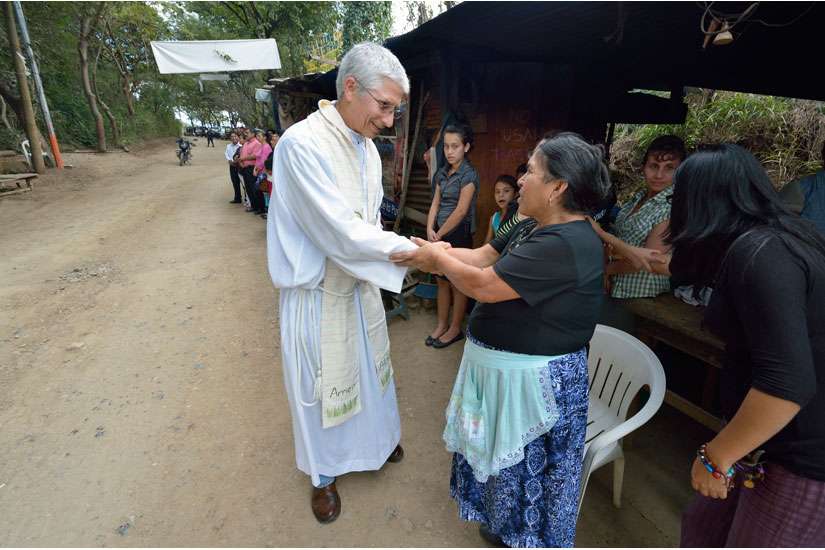Both the Canadian and United States conferences of bishops sent representatives to a Mar. 19 hearing of the Inter-American Commission on Human Rights in Washington, DC where Guatemalan Bishop Alvaro Ramazzini and Peruvian Bishop Pedro Barreto made the case for applying Canadian or American law to mining companies operating in Latin American countries.
The two bishops conferences also submitted letters of support which the Consejo Episcopal Latinoamericano (CELAM) submitted to the human rights commission.
“It is a particular concern to us as well that the majority of mining operations in Latin America are controlled by companies registered in Canada,” wrote CCCB president Archbishop Paul Andre Durocher.
Durocher argues that mining can and should “be an important component in integral human development.”
But if local governments are incapable of applying environmental and human rights standards on a par with Canada’s, Canadian companies operating in smaller countries with weaker mining laws should still face Canadian justice.
“We also support in principle the creation of a law in our country that would allow these companies to be prosecuted under Canadian law for crimes committed abroad,” Durocher wrote.
A new, tougher Extractive Sector Corporate Social Responsibility office in Ottawa should be able to address the Canadian bishops’ concerns, Mining Association of Canada president and CEO Pierre Gratton told The Catholic Register.
“The latest iteration is, I think, a considerable improvement over the original strategy and now contains a number of improvements that frankly go a long way toward meeting the original intent of the ombudsman idea,” Gratton said.
Ottawa appointed its first Extractive Sector CSR Counsellor, Marketa Evans, in 2009. She quit the post in 2013 without ever having brought a complaint process to conclusion. Former mining engineer Jeffrey Davidson replaced Evans in March this year. Davidson will have the power to withdraw consular support, government loan guarantees and other economic supports from companies that refuse the ombudsman process.
“A lot of what the bishops are calling for is now in place or close to being in place,” said Gratton.
But the new CSR Counsellor doesn’t have the power to mount an independent investigation, or impose the kinds of penalties a company might face in court, said Development and Peace deputy director of in-Canada programs Ryan Worms.
The solution won’t come until Latin American countries pass better mining, environmental and foreign investment laws and enforce them, said Gratton.
“The best solution is not looking to Canada to solve Guatemala’s challenges,” he said. “Guatemala has to solve its challenges.”
But the many issues with mining can’t overshadow the fact that civilization is not possible without mining and its products, said Worms.
“We see the Church saying yes to mining, but to mining operations that will first benefit the local communities, benefit the poor and respect their rights,” he said.


